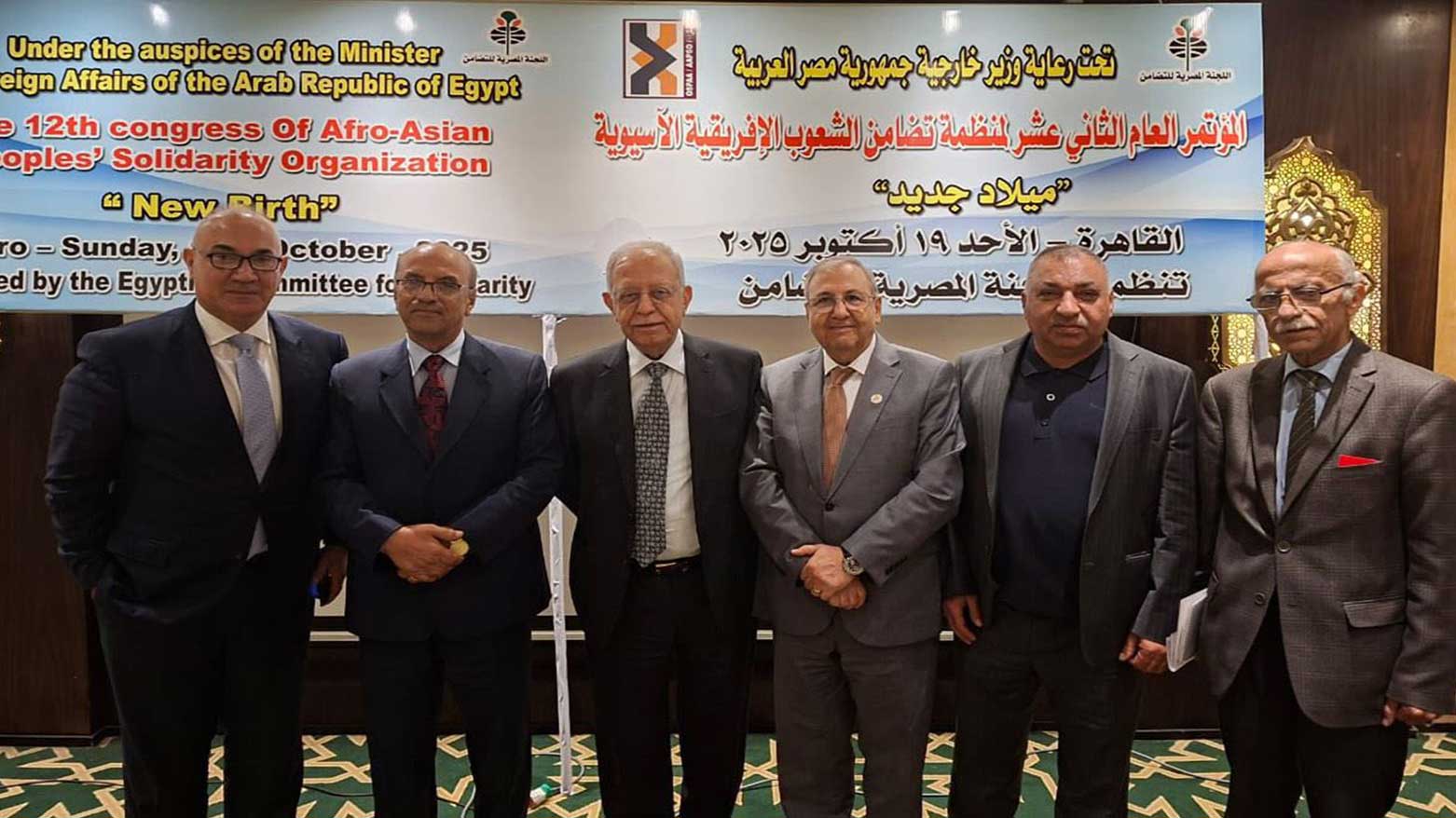Kurdish Scholar Mohammed Ihsan Elected Secretary-General of New Regional Organization in Cairo
Professor Mohammed Ihsan’s election as Secretary-General marks a new chapter for the Afro-Asian Peoples’ Solidarity Organization’s mission to promote justice, peace, and regional cooperation.

ERBIL (Kurdistan24) — Former Egyptian Foreign Minister Mohamed El-Orabi was elected President, and Iraqi Kurdish academic Professor Mohammed Ihsan was chosen as Secretary-General of the Afro-Asian Peoples’ Solidarity Organization (AAPSO) during a high-level session held in Cairo, Egypt’s capital.
The event brought together senior diplomats, scholars, and policymakers from across the Middle East to strengthen regional cooperation, enhance dialogue on peace and development, and promote collective engagement on global issues.
Professor Mohammed Ihsan, a globally respected academic and genocide expert, has a distinguished record of public service and scholarship.
A former minister who served in multiple cabinets of the Kurdistan Regional Government (KRG), he is internationally recognized for his expertise in documenting mass atrocities, international law, transitional justice, and post-conflict governance.
Holding three doctoral degrees — in International Law, Political Science, and Comparative Religion — Ihsan has held academic appointments at leading universities across Europe, Asia, and Latin America.
He currently serves as a senior research fellow at King’s College London, a senior visiting professor at Yale University, and an honorary senior professor at the University of Exeter.
A prolific researcher and contributor to international media, Ihsan’s appointment is expected to significantly enhance the Organization’s role in addressing issues of justice, accountability, and regional solidarity.
His leadership is seen as a bridge between academia and diplomacy, with a focus on promoting stability and human rights in the Middle East.
In addition, Iraqi scholar Dr. Jasim Al-Halfi, a prominent civil society leader and advocate for democratic reform, was appointed Vice President of the Organization. Known for his activism and thought leadership, Dr. Al-Halfi’s appointment reflects the Organization’s intent to incorporate diverse perspectives and strengthen its engagement with grassroots movements across the region.
The election of El-Orabi, Ihsan, and Al-Halfi marks a new chapter in regional cooperation aimed at fostering dialogue, advancing justice, and building stronger institutions capable of responding to the Middle East’s evolving political and humanitarian challenges.
Founded in January 1958 at its inaugural conference in Cairo, the AAPSO emerged as one of the earliest and most influential post-colonial movements advocating for cooperation between the peoples of Africa and Asia.
Rooted in the ideals of the Bandung Conference and aligned with the Non-Aligned Movement, AAPSO has long served as a platform for nations striving to free themselves from colonial domination and external interference.
Over the decades, the organization has championed causes such as national sovereignty, social justice, economic independence, and global disarmament.
Guided by the principles of the UN Charter, AAPSO continues to promote a democratic and pluralistic world order, advocating for poverty alleviation in developing countries, environmental protection, and the advancement of human rights.
Its legacy as a voice for solidarity and peace across the Global South remains vital in today’s multipolar world.